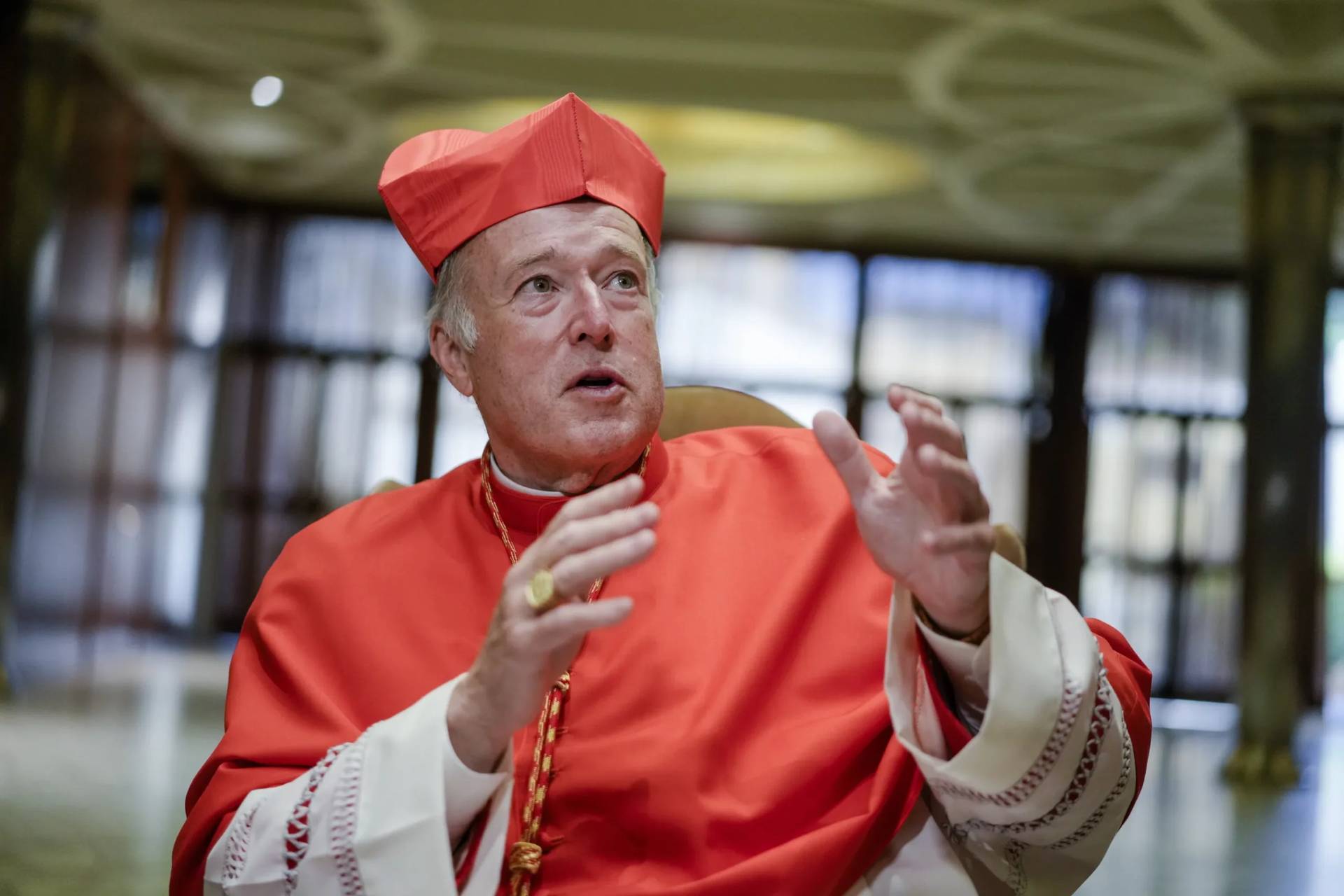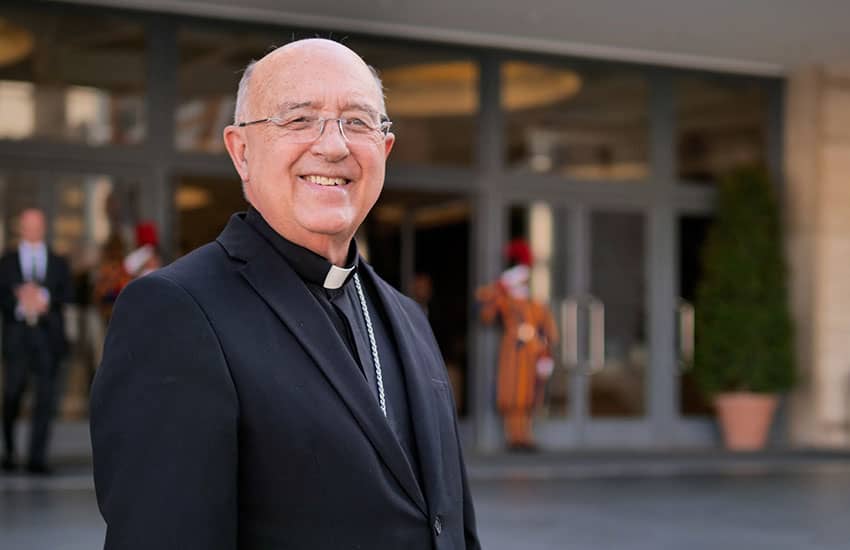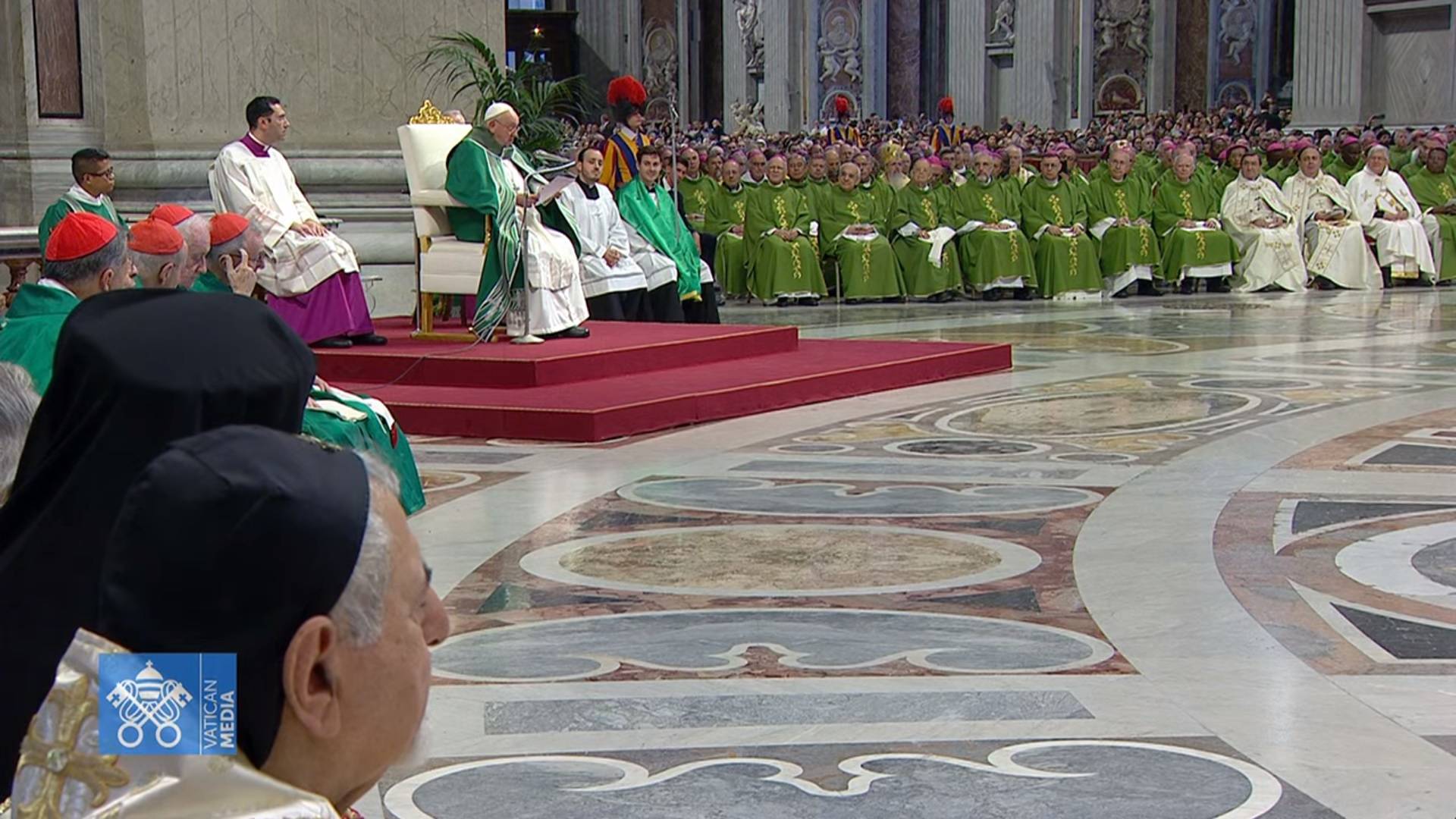ROME – An old joke about the Catholic Church goes like this: A gala priests’ dinner takes place in a swanky New York hotel ballroom, featuring a sumptuous five-course meal and abundant fine wines, followed by expensive cigars and cognac on a terrace with a killer view of Central Park. Afterwards, a waiter who served the meal asks a colleague what he made of the whole thing.
“Well, if that was poverty,” the other waiter replies, “I’d love to see how they handle chastity!”
The punchline comes to mind as the Oct. 4-29 Synod of Bishops on Synodality, where the watchword from the beginning has been “welcome,” reaches its conclusion against the backdrop of a surreal case in northern Italy which illustrates the paradoxes of welcome in the contemporary Church.
In a nutshell, here’s the situation: A prelate who was exiled from the Vatican last year, supposedly for being insufficiently welcoming to the LGBTQ+ community – and who, for bonus points, also has ties to an alleged sex abuser who was kicked out of the Jesuit order over the summer – is currently in the process of censuring a couple of traditionalist Catholic priests who, in turn, claim that they’re being denied a place at the table in the Church.
To paraphrase the joke with which we began, one might say that if this is “welcome,” it would be fascinating to see what exclusion looks like.
The situation is unfolding in the Diocese of Reggio Emilia-Guastalla, located in northern Italy between Parma and Bologna. It’s under the direction of Archbishop Giacomo Morandi, formerly the secretary, or number two official, in what used to be the Vatican’s Congregation for the Doctrine of the Faith, now the Dicastery for the Doctrine of the Faith.
Morandi was the official responsible for a March 2021 response from the congregation on the possibility of blessing same-sex unions, which basically offered a firm “no.” Although the document was said to have been approved by Pope Francis prior to its release, it was widely felt that the time that the pontiff regarded it as overly sweeping and negative, an impression confirmed in January 2022 when Morandi was relieved of his position before his five-year term ended and shipped off to a relatively minor diocese.
Famously, Francis opened the current synod with responses to a set of dubia, or “doubts,” submitted by five cardinals, in which he offered a more nuanced and cautiously approving stance than was expressed in that 2021 document.
A Biblical scholar by training, Morandi at one stage during his career also taught in the Centro Aletti, an institution in Rome associated with Father Marko Rupnik, a celebrated Slovenian artist now facing accusations of sexual abuse from roughly 20 women stretching over a 30-year period. Rupnik was expelled from the Jesuit order in July after an internal investigation found the charges “very highly credible.”
In 2009, Morandi published a book titled Beauty devoted to Rupnik’s frescoes adorning the Vatican’s Redemptoris Mater Chapel, extolling them as an inspiring expression of the faith.
Now a diocesan bishop himself, Morandi issued a public decree on Oct. 19 concerning two priests within his diocese, essentially barring them from celebrating Mass and the other sacraments.
The priests are associated with a small community known as the Cittadella Divina Misericordia, or “Citadel of Divine Mercy,” which is located outside a small town in northern Italy of just over 3,000 people called Casalgrande Alto, and which is within the boundaries of the Diocese of Reggio Emilia-Guastalla.
The community is organized around an agricultural cooperative involving a few dozen families, and also features celebration of the traditional Latin Mass as well as programs of catechesis and spiritual formation. It was founded by Father Claudio Crescimanno, originally from the nearby province of Modena.
It rose to prominence in 2021 by virtue of the fact that a well-known local politician associated with the far-right anti-immigrant Lega party was attending its liturgies, which were being staged without facemasks or social distancing in defiance of anti- Covid-19 measures imposed by both the Italian government and the Italian bishops’ conference.
Since taking over in Reggio Emilia-Guastalla, Morandi has continued canonical proceedings against both Crescimanno and another priest named Father Andrea Maccabiani, who, it turns out, was ordained by traditionalist Bishop Richard Williamson, a noted Holocaust denier and staunch traditionalist who was at one point a member of the Society of St. Pius X founded by the late French Archbishop Marcel Lefebvre, but who was expelled in 2012 because his views were too extreme even for them.
In effect, Morandi has decreed that neither priest has permission to celebrate the sacraments in the diocese. The ruling may not have much practical effect, given that the Cittadella Divina Misericordia had already declared that it no longer recognizes the authority of the current Catholic hierarchy, instead identifying itself with resistance movements inspired by Lefebvre.
Nonetheless, Crescimanno in a recent interview with a traditionalist YouTube channel insisted that the community wanted to have a “respectful” relationship with ecclesiastical authorities in the diocese, acknowledging that it represents a “tiny, tiny minority” within the overall Catholic population, and professed himself astonished that they’ve become targets instead.
(Such astonishment may be slightly disingenuous, given that in the same YouTube interview Crescimanno accused Francis of presiding over a progressive “Protestantization” and “secularization” of the Catholic faith.)
To sum up: A priest feels he’s not being welcomed by a bishop, who himself, apparently, wasn’t entirely welcome either, under a pope who opened his current synod by insisting that the Catholic Church must have its doors open to “everyone, everyone!”
Depending on how you look at it, two conclusions seem possible.
One could argue that the whole situation in Reggio Emilia-Guastalla illustrates that the rhetoric of “welcome” under Francis rings hollow – as the YouTube interviewer, who’s also a Latin Mass devotee, put it, “It means ‘welcome’ only for the people we like.”
Or, alternatively, it may also illustrate that despite one’s best efforts to open doors, sometimes there are going to be people who stubbornly refuse to walk through them unless it’s entirely on their terms, and at a certain point you just have to say, as the Italians would exclaim, Basta! “Enough!”
Whatever other conclusions one might draw, one point seems beyond all reasonable doubt: If there’s anything that’s perennially welcome in Catholicism, it’s paradox. If synod participants needed a reminder of the point, they can thank Morandi, Crescimanno, and the Cittadella Divina Misericordia for delivering it.














